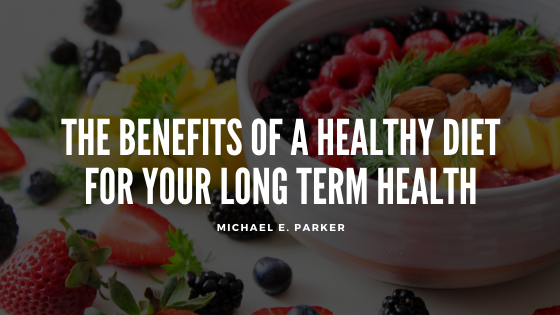An actual healthy diet includes foods that are rich in nutrients and represent all major food groups. These include fruits and vegetables of all types, whole grains, lean proteins, and necessary fats.
That means that trans fats, refined sugar, and salt should be replaced in whole or in part by more nutritious choices that have been proven to prevent or treat dangerous conditions or diseases. Doing this daily could ward away serious issues and improve your health.
Here are some examples of what a healthy intake could do for your long-term well-being:
-
Aiding in Digestion
A diet high in fiber from veggies, fruits, whole grains, and beans can promote regular movements of the bowels, preventing bowel cancer, as well as increase the amount of “good” bacteria found in your colon. Yogurt is a fermented food rich in healthy bacteria and is also recommended. Such bacteria produce vitamins B and K, help digestion, stabilize metabolism, and fight off viruses and harmful bacterial germs.
-
Managing Diabetes
Eating healthily benefits people with diabetes in many ways. It allows one to maintain average weight, manage glucose levels in the blood, and keep cholesterol and blood pressure within reasonable ranges. But, most importantly, people with diabetes must limit their carbohydrate, sugar, and salt intake to prevent complications.
-
Maintaining Heart Health
Hypertension, also known as high blood pressure, can lead to heart failure, heart attack, and stroke. Eating healthily, along with other lifestyle changes, can reduce that risk by up to 80%.
One can keep their heart healthy by avoiding fried foods high in trans and saturated fats which can clog arteries. Instead, they should choose fat-free or low-fat foods and eat plenty of fruits, veggies, and whole grains. Reducing refined sugar intake and avoiding sodium in favor of calcium, magnesium, and potassium is wise.
-
Reducing One’s Risk of Cancer
Consuming foods that contain antioxidants protects cells from damage and minimizes the risk of a person developing cancer. Antioxidants also remove free radicals from the body, decreasing the risk of cancer.
Antioxidants are found in vegetables, fruits, legumes, and nuts. These include lycopene, beta-carotene, and vitamins E, C, and A.
While a physician or a dietitian can provide more hints about healthy eating, one can follow the tips above to begin a nutritious diet. Everyone should get started today to prevent strokes, heart issues, type 2 diabetes, and obesity in the future.
